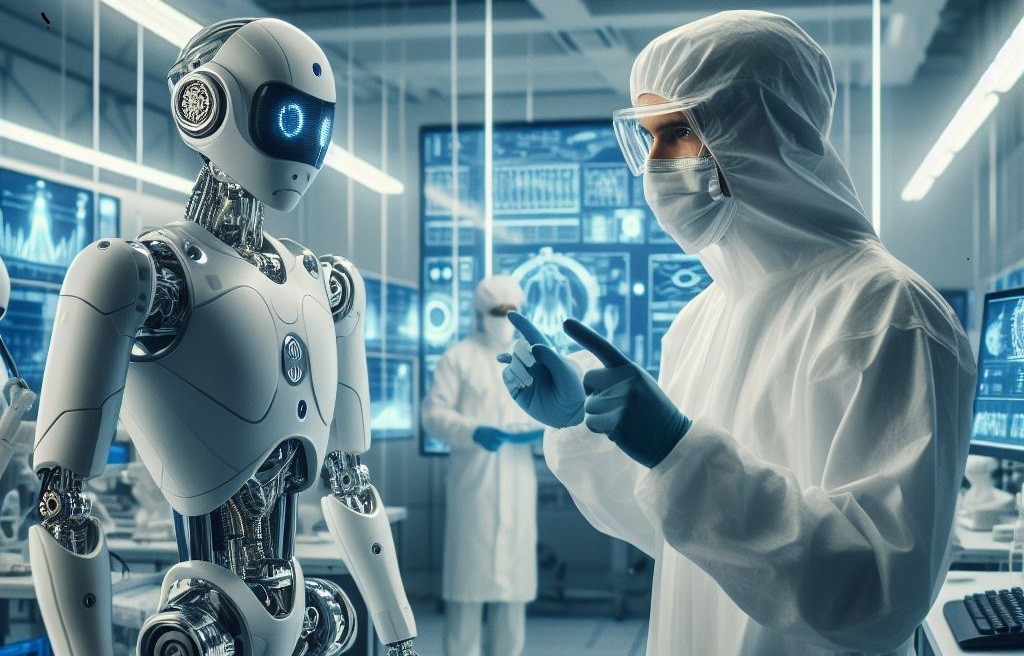The future of AI is poised to reshape industries, economies, and daily life in profound ways. As advancements in artificial intelligence continue, new opportunities and challenges will arise. Here are some key trends and predictions for the future of AI:
1. AI and Automation Revolution
- Workforce Transformation:
- AI and automation are expected to replace or augment many routine and repetitive jobs, from manufacturing to administrative tasks.
- While certain jobs may be displaced, new roles in AI development, data science, and robot management will emerge, emphasizing the need for re-skilling and up-skilling.
- Example: Automated customer service systems, such as AI-powered chatbots, are already reducing the need for human agents.
- Hyper-Automation:
- AI-driven technologies, like Robotic Process Automation (RPA) and intelligent automation, will continue to automate complex workflows, including decision-making processes, data analysis, and operational tasks.
- This will increase efficiency in areas such as supply chain management, finance, and healthcare operations.
2. AI in Healthcare
- AI-Assisted Diagnosis and Treatment:
- AI will continue to improve the accuracy of diagnoses, detecting diseases like cancer, Alzheimer’s, and heart conditions earlier than traditional methods. Medical imaging, genetic analysis, and real-time patient monitoring will become more sophisticated.
- AI-powered tools will assist doctors in creating personalized treatment plans based on vast amounts of patient data.
- AI in Drug Discovery:
- AI will accelerate the process of drug discovery by predicting how different molecules will interact with diseases. Machine learning models can help identify new drugs faster, cutting down research time and cost.
- Example: AI-driven tools were instrumental in the rapid development of vaccines and treatments during the COVID-19 pandemic.
- Robotic Surgery:
- AI-enabled robots will assist in precision surgeries, allowing for less invasive procedures, faster recovery times, and improved patient outcomes.
3. AI and Personalization
- Enhanced Consumer Experiences:
- AI will continue to power personalized experiences across various industries, from e-commerce and entertainment to advertising and content delivery.
- Streaming services like Netflix and Spotify, as well as retail giants like Amazon, will use AI to deliver hyper-personalized recommendations based on user behavior, preferences, and historical data.
- Tailored Learning and Education:
- AI-powered learning platforms will provide customized education plans for students, adapting to their learning styles and progress. AI tutors will help in reinforcing concepts and addressing learning gaps.
- Virtual classrooms powered by AI will offer personalized learning experiences to students in different regions of the world.
4. AI in Transportation
- Autonomous Vehicles:
- Self-driving cars, trucks, and drones will become a reality on a larger scale, reducing accidents, improving traffic flow, and offering new levels of convenience.
- Companies like Tesla, Waymo, and Uber are heavily investing in AI to perfect autonomous vehicles. However, widespread adoption will depend on advances in technology, regulatory changes, and public trust.
- AI in Traffic Management:
- AI will optimize urban traffic systems, reducing congestion and improving safety. Cities will adopt AI-driven smart traffic lights, predictive routing, and accident prevention systems.
- AI will enable better integration of different transportation systems, such as ride-sharing, public transport, and personal vehicles.
5. AI in Cybersecurity
- Proactive Threat Detection:
- AI will continue to evolve in cybersecurity, enabling systems to proactively detect and respond to potential cyber threats. Machine learning models will identify abnormal patterns and flag vulnerabilities in real-time.
- AI-driven cybersecurity tools will become essential in safeguarding networks, especially as the volume of data and connected devices grows (e.g., IoT).
- AI vs AI in Cyber Warfare:
- The future may see AI tools being used in cyber-attacks as well as defense. Advanced machine learning algorithms will be used by cybercriminals to carry out sophisticated attacks, while organizations will use AI to create stronger defenses.
6. AI and Ethics
- Ethical AI Development:
- As AI becomes more powerful, ensuring its ethical development and deployment will be a priority. Issues like algorithmic bias, data privacy, and transparency will need to be addressed to avoid negative consequences.
- Governments and organizations will establish regulations, policies, and frameworks for responsible AI use to mitigate risks such as job displacement, surveillance, and discrimination.
- AI for Social Good:
- AI will be used to solve some of society’s biggest challenges, including climate change, hunger, and poverty. AI tools can predict natural disasters, optimize resource distribution, and enhance environmental conservation efforts.
- Example: AI models are already being used to track deforestation, predict floods, and improve crop yields in agriculture.
7. Human-AI Collaboration
- AI as an Augmenting Force:
- AI will increasingly work alongside humans, augmenting our abilities rather than replacing them. In fields like medicine, engineering, and creative industries, AI will serve as an assistive tool, helping professionals make better decisions.
- Example: In creative fields, AI tools are already being used to generate art, music, and literature, while human creativity adds nuance and meaning to the work.
- AI-Powered Robotics in Daily Life:
- Robots equipped with AI will become more prevalent in homes and businesses, assisting with tasks such as cleaning, caregiving, and even companionship.
- Example: AI-powered robots like Boston Dynamics’ Spot are already being used in industries such as construction, healthcare, and logistics.
8. AI in the Creative and Entertainment Industries
- AI-Generated Content:
- AI will increasingly generate music, artwork, video, and even literature. Deep learning models such as GPT-4 and DALL·E have already demonstrated AI’s capabilities in creating coherent and creative content.
- In the future, AI may collaborate with artists, filmmakers, and writers to produce highly personalized, interactive content experiences.
- Virtual Reality (VR) and Augmented Reality (AR):
- AI will be used to create more immersive experiences in VR and AR, offering realistic virtual worlds and personalized interactions in gaming, entertainment, and training simulations.
- AI-powered virtual influencers, avatars, and digital humans will become more common in digital marketing and entertainment.
9. AI in Finance
- Algorithmic Trading:
- AI will continue to dominate financial markets by optimizing trading strategies and making faster, more accurate predictions.
- AI will help detect market trends, assess risks, and provide recommendations for investment opportunities with greater precision.
- Fraud Detection and Prevention:
- AI will enhance fraud detection systems by identifying patterns that indicate fraudulent activities. This will improve security in banking and e-commerce by detecting anomalies in real-time.
10. General AI (AGI) and Superintelligence
- Artificial General Intelligence (AGI):
- While we are currently in the age of Narrow AI (specialized in specific tasks), the development of AGI, which can perform any intellectual task that a human can do, is a distant yet possible future.
- AGI will have the ability to learn, reason, and adapt across various domains, but the ethical implications and potential risks of AGI need careful consideration.
- Superintelligence:
- Superintelligence, which surpasses human intelligence in every aspect, remains a theoretical concept. If achieved, it could revolutionize society but also pose significant challenges, including control, safety, and alignment with human values.
Conclusion
The future of AI is bright and full of possibilities. As AI continues to advance, it will profoundly impact industries, economies, and daily life. While AI offers tremendous benefits, it also presents challenges, particularly in areas of ethics, privacy, and workforce disruption. The key to harnessing AI’s potential lies in responsible development, transparent governance, and ensuring that AI technologies benefit humanity as a whole.






